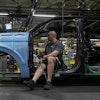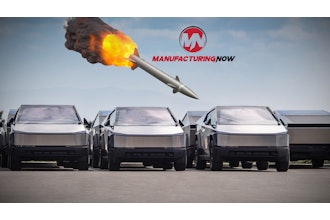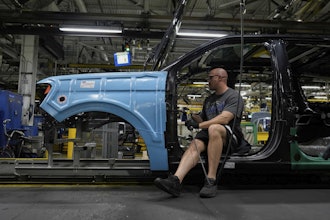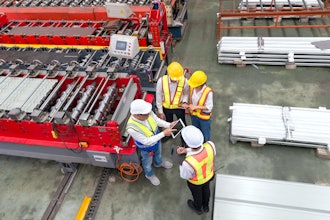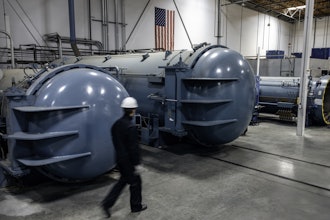In a just released survey of 101 manufacturing executives in the automotive industry, a majority said that the cost of stopped production averages $22,000 per minute. While one minute of stopped production, or downtime, costs an average of $22,000, some survey respondents cite the figure to be as high as $50,000 per minute.
How are manufacturing companies managing their bottom lines when machinery maintenance is so costly? Can they find the skilled labor they need to keep production machinery operating smoothly? Where is the next generation of factory service workers? Is outsourcing the answer?
Jeff Owens, president of Advanced Technology Services, Inc. (ATS), believes that while good skilled labor might exist at many manufacturing facilities, it can be hampered by bad or outdated processes and systems, and inadequate management. Owens, whose company commissioned the survey, explains that many plants are operating on computerized maintenance systems that were installed in the 70s.
"The capacity of these systems is sometimes underutilized, simply because there is not the skilled labor available to learn new techniques and develop processes, or the current labor force does not have the tools and training needed," said Owens.
The amount of downtime varies widely from plant to plant, depending upon industries and processes. According to Owens, an hour of downtime would not be an uncommon occurrence. "A part, or even an expert technician, may need to be flown in to alleviate a problem, and this can take days in some cases," said Owens. "You can see the dollars adding up exponentially as the clock ticks on."
In the survey, an overwhelming 70% of respondents said that they would outsource a certain department or job function if it meant they no longer had to search for and recruit skilled workers. An earlier survey showed that a majority of manufacturers anticipate the cost of the skilled worker shortage to be an average of $50 million per company across the industry.
Yet, almost everyday we hear of worker layoffs and plant closings. Doesn't that mean that a flood of unemployed workers is filling the market on any given day? According to Owens there is a disconnect between the number of layoffs and the skilled labor shortage in the manufacturing market.
In its simplest context, the laid-off workers might not be the right fit for the job openings available. And many times the personnel losing their jobs are not always "the best and the brightest" of the bunch - companies tend to divest themselves of the "weakest link" employees, if possible. And when it comes to those workers close to retirement, they might not be interested in re-entering the job market in the same field.
"The average blue collar worker tends to not be very mobile," said Owens. "They prefer to stay close to their roots and family ties, and are not easily relocatable." So a layoff of workers in one area of the U.S. does not necessarily help an organization in another part of the country that is looking for workers.
The real answer comes in retraining workers and getting young people interested in careers in manufacturing. Manufacturing and especially production maintenance jobs are not the "back-breaking" tasks they once were and require brains and computer skills in today's world.
"Every kid uses a computer, at home and in school," said Owens. "What we need to do is to get these kids to see how that computer is tied to a machine function and translates into a real career." Most young people are not aware of manufacturing jobs and how these jobs can offer a secure future, health benefits and retirement plans.
"After all," said Owens, "how many parents encourage their children to go into manufacturing as a job prospect? We need to educate parents and kids about the benefits of entering the manufacturing workforce."
When executives in the survey were asked which factory service would provide the most productivity gains if outsourced, more than half (53%) answered production machine maintenance. And it's not just fixing broken production machinery that is needed, but predictive and preventative maintenance functions to help optimize their factory's performance. Other areas they would outsource are the management of tool rooms and spare parts storerooms.
Outsourcing provides not only jobs for the outsourced workers, but can also help a company make their manufacturing facility more competitive in today's global market. A manufacturer who uses the services of an outsourced maintenance supplier can have the skilled labor they need to run their plants at a world-class level.
"It is really the best of both worlds," concludes Owens. "The company that provides the outsourced service offers training and jobs for workers, and the manufacturer receiving this service can have the machine and plant maintenance they need to remain competitive in today's market."



